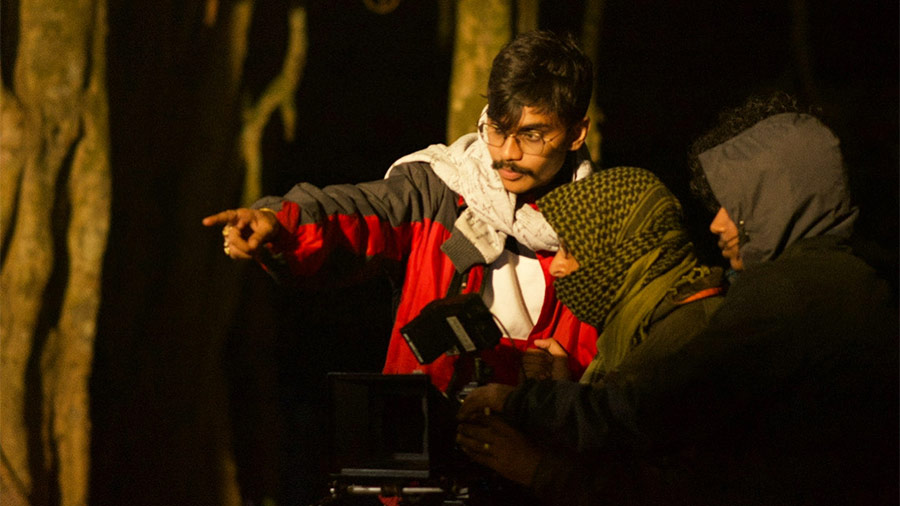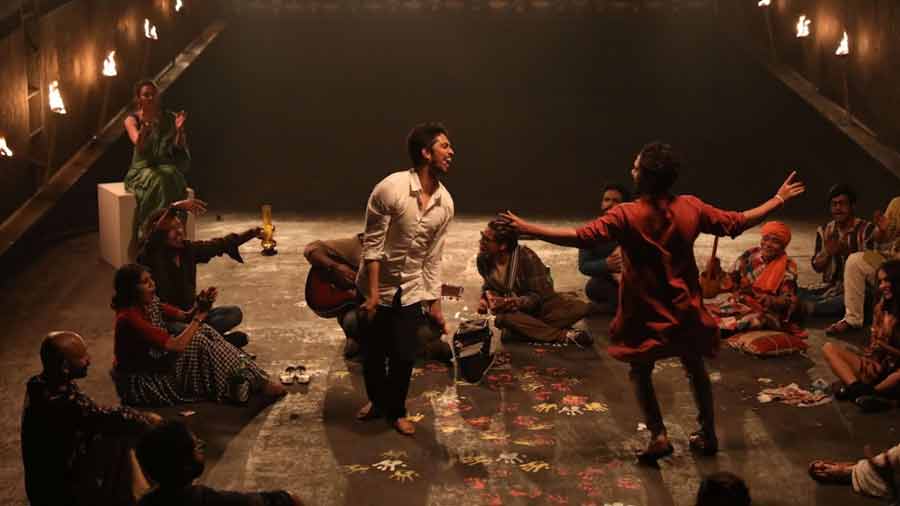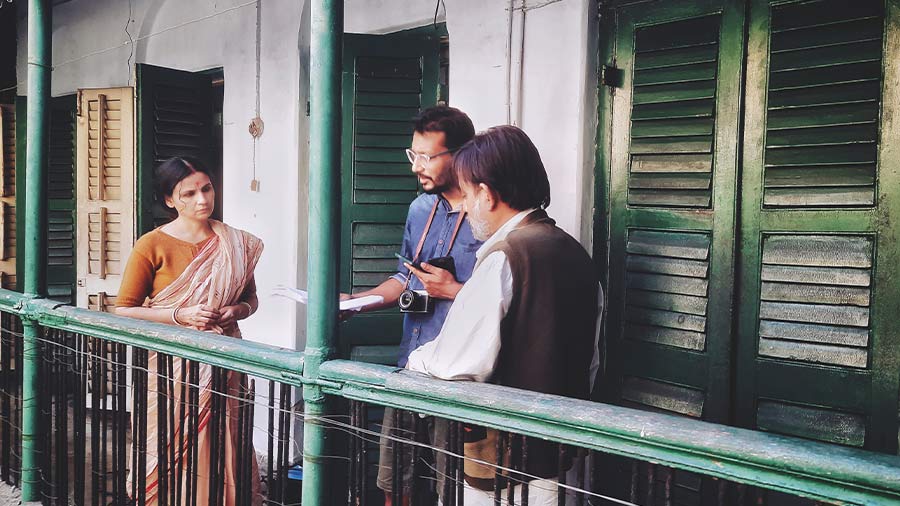“Cinema is a mirror through which we often see ourselves,” said Mexican filmmaker Alejandro Gonzales Inarritu. Cinema is a running commentary on everything that makes us human. Good cinema, therefore, is not just about providing viewers with an escape from reality, but also about showing us the reality of things within and around us. This is precisely the definition of cinema that appeals to Ankit Santra, a 24-year-old independent filmmaker from Kolkata, whose work is being screened in several international film festivals, from Melbourne to Moscow, from Toronto to Dhaka.
Films, however, were not Ankit’s first love. Rather, it was the world of paintings that intrigued him. The Garden of Earthly Delights by Dutch artist Hieronymus Bosch made Ankit think how “if a single frame, which is a painting, can impact one person so much, then a series of images can do so much more”. By combining the pictorial communication of a painter with an audio-visual medium, Ankit started experimenting with making films.
‘I’m not scared of making flawed films because I want them to be authentic and believable’
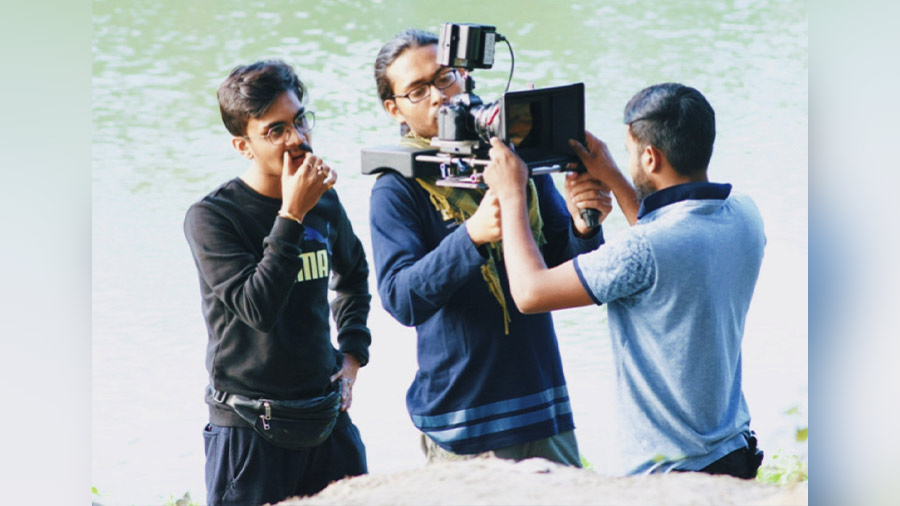
Ankit likes to tell stories that reflect the phases of life that he is going through
“Helplessness drives me,” says Ankit, before adding: “I’m more drawn to making films about things and situations that I can’t do anything about in real life. For me, it’s important to be able to tell stories that reflect the phases of life that I’m going through. My journey of maturing is reflected in my filmography. I don’t want people to see my current films and think that a 35-year-old made them. I want to make mistakes that are meant for people of my age. I’m not scared of making flawed films because I want them to be authentic and believable.”
Ankit’s debut short film, River, Road and Hoodwinked Toad (watch the trailer here), is presently screening (for a month since November 15) at the Indian Film Festival of Melbourne’s online platform. Earlier, it had been shown at the VGIK International Student Festival in Moscow between November 13 and 17. The movie is a reflection of the turmoil Ankit was facing when his dreams came to a sudden halt due to Covid-19. This overtly political film is not merely about the pause that the pandemic brought in everyone’s lives, but also a reflection on the politics of promises that the crisis spawned.
“My characters are conflicted. They are emotional manifestations of situations that concern us as a society,” says Ankit. For example, the character of Bihaan in his recent film, The Dreamcatcher (watch the trailer here), which is a semi-finalist in the Flickers’ Rhode Island International Film Festival in the US. The film premiered at IFFSA Toronto, North America’s largest South Asian Film Festival, and is scheduled to be screened at the Dhaka International Film Festival in January 2024. Ankit’s Bihaan is a dejected, guilt-ridden character who eventually comes to terms with the mistakes he has made in life. As someone who has worked to formally disseminate political propaganda, Bihaan’s profession seeps into his personal life and wreaks havoc. Ankit uses his creative dexterity to show how repeating the same lie over and over again results in one mistaking it for the truth. “Bihaan’s character is a metaphor for how all the macro-politics going on in our country is directly responsible for shattering the moral structure of the State,” explains Ankit.
‘My stories are Indian, but they are best said when I’m in London’
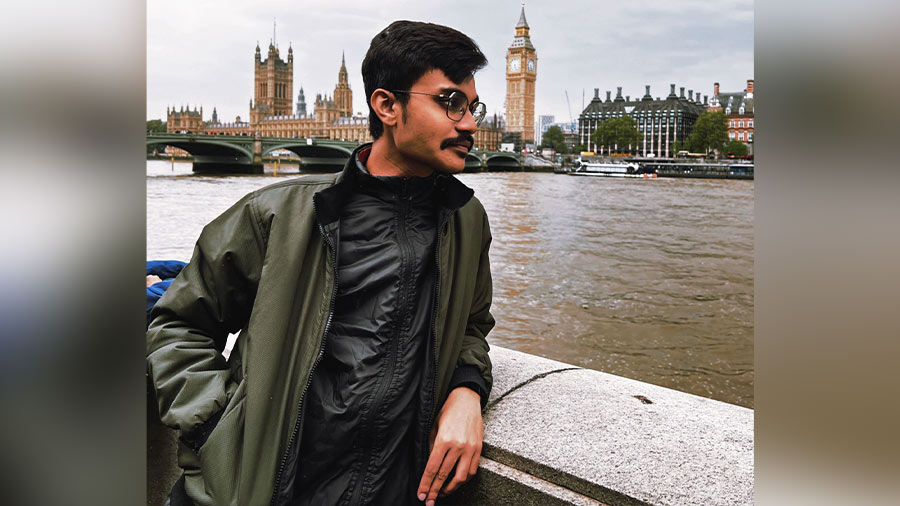
Making a film is a laborious and emotional process, feels Ankit
The first question that Ankit asks himself when he sits down to write his stories revolves around what he himself would have done had he found himself in the midst of his plots: “Suppose I’m writing a story about war in Kolkata. I’ll place myself at the centre of it and start asking questions. What would I do? Am I being affected by the war or am I privileged enough to not be affected by it? After several such sets of questions, I finally arrive at the character whose story I want to share.” Ankit is also insistent on how filmmaking is not a solo venture, but a collaborative process: “Films mean a lot to me because a lot of effort goes into making them. Gathering like-minded people who will work on a project with you and treat it with the same amount of care is a laborious and emotional process.”
Born and brought up in Kolkata, Ankit graduated from St. Xavier’s College in 2020 before moving to the UK to pursue his master’s in filmmaking. Currently living between Kolkata and London, Ankit considers this phase of his life to be a “beautiful musical”. While Kolkata has taught Ankit an outward-looking approach towards his stories, London affords him the space to look within. “When I’m in Kolkata, I see different stories all around me. When I’m in London, I get the chance to think and understand how these stories impact me and why I want to make a film out of them. My stories are Indian, but they are best said when I’m in London,” feels Ankit.
The recent success of Ankit’s films has helped shape his perspective on what the audience appreciates. But he has also learned from his rejections over the first full year of his filmmaking career. “The rejections teach me a lot and allow me to sharpen my craft. They aren’t going to change my voice as a filmmaker. But, at the same time, knowing what works and what doesn’t gives me the space to grow… At this stage, filmmaking isn’t a business-oriented process for me. Rather, it’s all about communicating with the audience. In this sense, film festivals help me a lot by making me more curious to know my audience better,” concludes Ankit.
